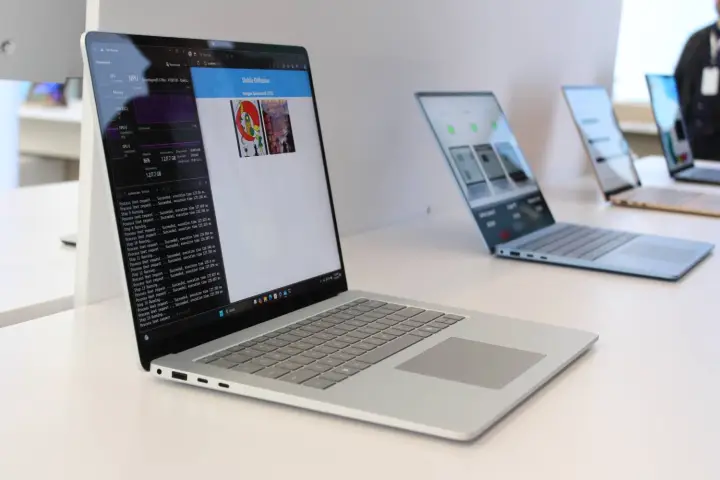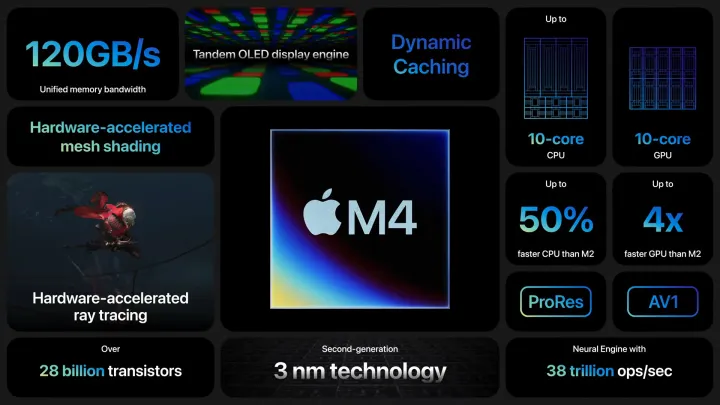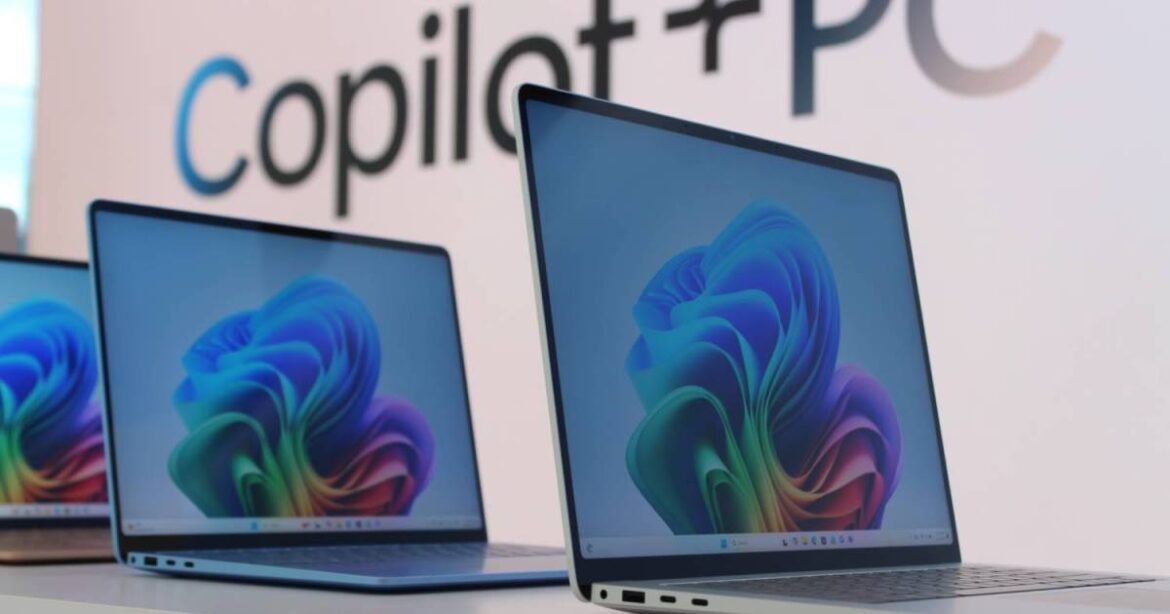
MacBooks have done well.
- Performance vs. M3
- Battery life
- The war has only just begun
It’s been four years that I’ve been following Intel, AMD, Microsoft, and every laptop maker with their Apple Silicon ARM chips. Until recently, PC sales were also down, while Macs were flat.
But Apple’s hold on the world of thin, portable, powerful, and durable laptops is over. With the new Copilot+ devices announced today, the playing field has been leveled and the bar has been raised. Now that we’ve gotten a peek behind the scenes, we can say this: things are moving fast terribly interesting.
Performance vs. M3

Let's cut to the chase: the new Copilot+ PC lineup really does have what it takes to challenge the MacBook Air M3. Qualcomm has spent most of this year making ambitious claims about its new Snapdragon X Elite chips, but it was easy to write them off. But now it's real. I've got the real deal
“First, they’re going to be the fastest, highest-performance PCs on the market, by a large margin,” Microsoft executive vice president Yusuf Mehdi told us, referring to Copilot+ PCs. “Take the fastest, highest-performance PC out there, let’s say a MacBook Air with an M3 processor. These PCs will outperform that by 50 percent on the Cinebench benchmark.”
Among a small group of media outlets, I saw those claims in action. There it was — the new 15-inch Surface Laptop running various benchmarks side-by-side with the M3 MacBook Air 15-inch.
Since the release of the M1 MacBook Air, the industry-leading performance per watt of these chips has sent shockwaves through the PC market. At the time, the M1 did things that seemed impossible in a fanless laptop. Since then, Apple has only continued to push that feat over the years, making it hard to imagine Windows
Across the board, these new Copilot+

Because of Microsoft's tighter restrictions, the company says there will be less variation in performance between models than in the past. That means you can expect these numbers to hold up whether you opt for a Dell XPS 13, the Lenovo Yoga Slim 7x, or the new Surface Laptop.
Of course, to make all this work, it was necessary to rebuild Windows around ARM compatibility, including a new kernel, compiler and schedulers. The entire system is now designed to optimize the CPU performance of ARM chips — whereas previously that was the biggest stumbling block. That apps themselves need to run natively, something Microsoft has made big strides towards in the run-up to this launch.
Battery life

If MacBooks ever had a calling card, it was battery life. That was true before the Apple Silicon era, but it really became a differentiator with the M1. MacBooks went from lasting a few hours longer to more than twice as long. It's not that MacBooks had better battery life — they were a shyness to Windows
That’s no longer true. I haven’t run the tests myself, but again, I was able to see side-by-side results of the new 15-inch Surface Laptop versus the MacBook Air 15. Microsoft claims 16 hours of web browsing, which is an hour more than Apple claims. Battery tests are never apples to apples comparisons, but Microsoft also claims 20 hours of local video playback. We’re definitely close to MacBook numbers, and could potentially go further depending on the individual laptop.

So how were these huge leaps in battery life achieved? Well, ARM’s efficiency has provided Microsoft with a lot of new power management capabilities that simply weren’t there before. Standby power is a big part of what makes a MacBook feel like it’ll last forever — and it’s another area where Microsoft has delved deep.
“When you’re done and you walk away from your computer, you come back hours, minutes, days, the next day, as soon as you open that lid, the machine is ready to log in,” Pavan Davuluri, the Windows and Devices team leader, told us. “So we really had to focus on standby power. We minimized hibernation in the Windows platform itself.”
Interestingly, these new Copilot+ devices have to manage this incredible battery life while running persistent AI models in the background. That's all thanks to the chip's neural processing unit (NPU) performance, which is now up to 40 TOPS. I won't go into too much detail here, but suffice it to say that these always-on AI models would pose a huge problem for the battery life of currently available devices
The war has only just begun

Of course, there’s still a lot of independent testing to be done to verify all of this. And even with what we’ve seen so far, there are still plenty of questions that remain. For example, there’s no mention of single-core performance, and that’s an area where the MacBook Air M3 still has the lead. And then there’s the MacBook Pro, where this current Copilot+
It must also be said: this Copilot+
Of course, there's more to a laptop than just performance and battery life. MacBooks have a number of things Windows
But that is precisely the great strength of the Windows platform. There will be some
